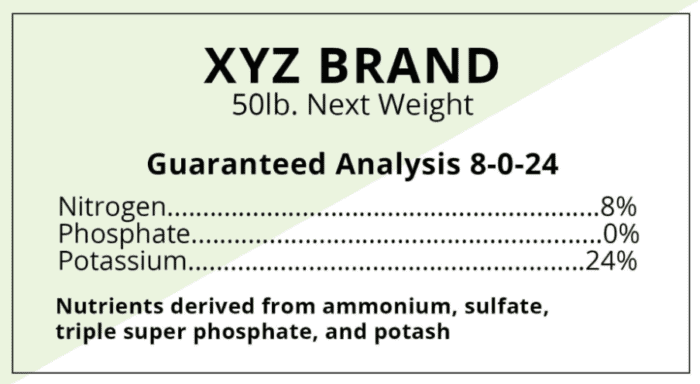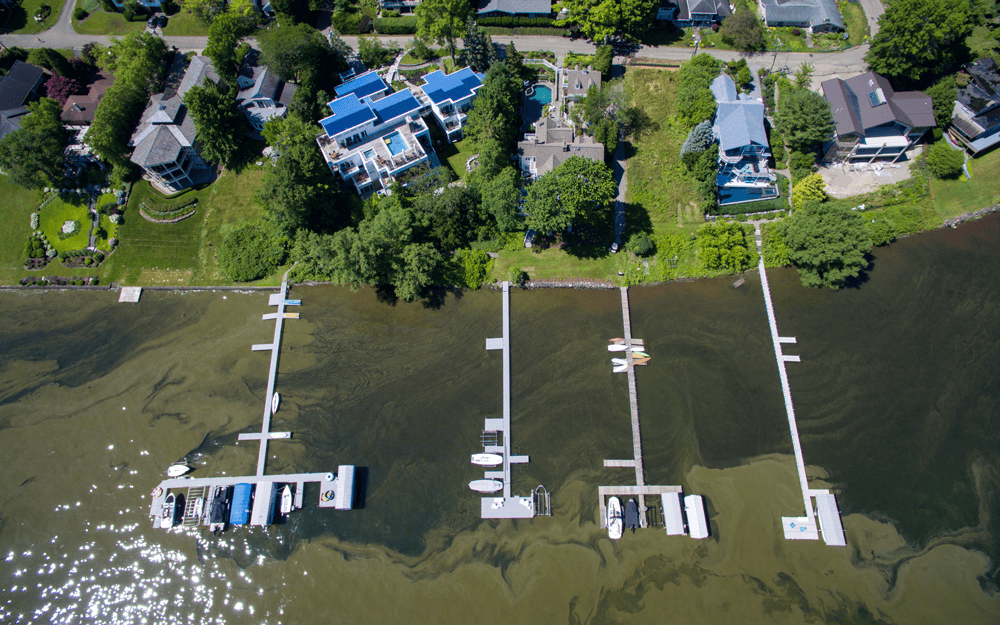As part of our dedication to improving the health and longevity of Chautauqua Lake and its surrounding watershed, Chautauqua Institution will empower property owners to implement best practices for fertilizer use that protect water quality and the health of the Chautauqua Lake aquatic ecosystem. We will attempt to accomplish this first by educating our community about the potentially negative impacts of lawn fertilizers and herbicide use in our waterfront community. This is essential to protect water quality and the health of the Chautauqua Lake aquatic ecosystem.
If you are considering using lawn care products, such as fertilizers or herbicides, have your lawn and soil conditions tested by a professional to determine what nutrients, if any, may be needed. Soil testing is available for a small fee through the local office of Cornell Cooperative Extension in Jamestown, New York. They may be reached at 716-664-9502 or chautauqua@cornell.edu.
Buffer Zones Owned by Chautauqua Institution
Chautauqua Institution owns a minimum 50 foot-wide section of lakefront land for the entire length of shoreline from the former Packard Manor Property to the south perimeter fence line, and a 25 foot-wide section of lakefront land at the former Packard Manor. The use of all fertilizers and herbicides by non-Institution authorized personnel on Chautauqua Institution property is strictly prohibited.
Private Property
If you have already received guidance from a professional about eliminating or minimizing the use of fertilizers and pesticides, below are guidelines to help property owners in their decisions, selection and use of environmentally safe lawn care products.
Herbicide Use
Applying herbicides and/or other treatments in waterways, including Chautauqua Lake without proper New York State Department of Environmental Conservation-Issued permits is strictly prohibited and is a violation of NYS law. The use of herbicides on gardens or lawns containing glyphosate or neonicotinoids on the campus of the Institution should be limited to specific target application methods by certified applicators.
Fertilizer Use
The use of fertilizers by non-Institution authorized personnel on lands owned by Chautauqua Institution is strictly prohibited. Please refrain from using fertilizers containing phosphorus on privately-owned lawns on the campus of the Institution, unless deemed necessary and documented through professional soil testing. Phosphorus runoff can lead to harmful algal blooms and excessive macrophyte growth (in-lake weeds) leading to an unhealthy lake and degraded water quality. If you choose to use non-phosphorus products, these fertilizer containers identify an N-P-K nutrient analysis. An N-P-K with a “zero” in the middle, indicates the fertilizer is phosphorus-free.

Timing Restrictions
If fertilizers are needed based upon certified testing, autumn is considered the best time to apply them. Fertilizers should not be applied before heavy rain or during periods of high runoff to minimize the risk of pollution.
Limit Nitrogen Content
The maximum nitrogen content of fertilizers allowed is 10% to prevent excessive nitrogen runoff, which can contribute to eutrophication and harmful algal blooms.
Organic Alternatives
If you choose to use lawn care products, the use of organic fertilizers is highly recommended along with integrated pest management practices to reduce the reliance on synthetic chemicals and minimize environmental impacts.
Professional Application
If you choose to use lawn care products, you are encouraged to use professional applicators who are certified and trained in proper chemical application techniques. This can help ensure that chemicals are applied safely and effectively, minimizing the risk of runoff.
